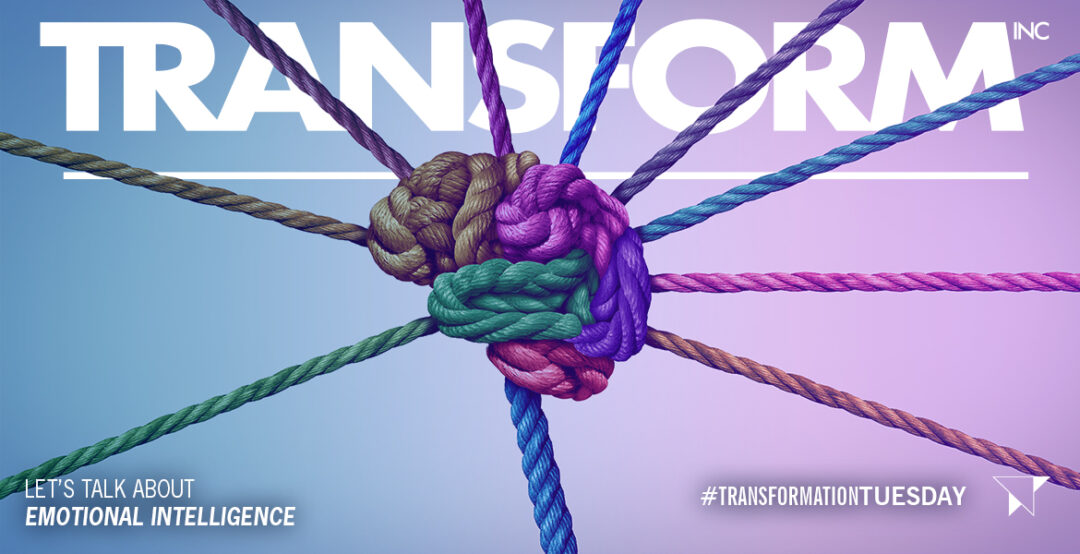What is Emotional Intelligence, and why is it vital to success in the workplace?
We all know past and present teammates who easily connect with others. They are often seen as caring, the wise ones in the workplace. People gravitate to them. However, they often baffle those uncomfortable with or unable to identify and work with emotions.
Did you know that 90% of top performers have, or have developed, high Emotional Intelligence (EI)? In leadership, those with high EI earn more than their lower EI colleagues. And doesn’t that make sense – often leaders with a low EI quotient will come across as defensive, not open, withdrawn, not caring. They may struggle putting emotions into words. They might lash out or withdraw when things get tense and they are triggered.
In leadership and workgroups, healthy relationships are the heartbeat of productive communication and collaboration. There’s a heavy productivity and relationship cost when emotions aren’t paid attention to. When there’s a disconnect leading to misunderstandings and miscommunication, it is often due to a lack of EI.
Since approximately 58% of job performance is seen as your ability to navigate the seas of Emotional Intelligence, it might be smart to pay more attention to how it operates in your life and work.
So, what is EI? Here are a couple of fitting definitions:
In simple terms, Emotional Intelligence (EI) is the ability to recognize your emotions, correctly identify the emotion you’re feeling and know why you’re feeling it. It’s the skill of understanding what trigger or event is causing the emotion and the impact of that emotion on yourself and others; and then adjusting your emotional response to the trigger or event in order to achieve the best outcomes.
– Colleen Stanley
EI is the ability to perceive emotions, to access and generate emotions so as to assist thought, to understand emotions and emotional knowledge, and to reflectively regulate emotions so as to promote emotional and intellectual growth.
– Mayer & Salovey
See where you land on these 5 key components of Emotional Intelligence. Rate yourself using a scale of 0-5. Have others you work with, or who know you well, rate you to see if your perception is in line with others’.
- Self-Awareness – The ability to recognize and understand personal moods and emotions and drives, as well as their effect on others.
- Self-Regulation – The ability to control or redirect disruptive impulses and moods, and the propensity to suspend judgment and to think before acting.
- Internal Motivation – A passion to work for internal reasons beyond money and status; a propensity to pursue goals with energy and persistence.
- Empathy – The ability to understand the emotional makeup of other people. A skill in treating people according to their emotional reactions.
- Social Skills – Proficiency in managing relationships and building networks, and an ability to find common ground and build rapport.
Want to raise your EI quotient? Here are some skills for your consideration:
- Improve your self-awareness. Check in with yourself to see what you’re feeling before you respond/react to others – what’s happening in your head, heart, and body? Practice in terms of your own and others’ emotions. Remember, your feelings are your own; others’ will often differ. Pay attention to both.
- Stay away from blame when things get heated – and when possible, take a pause before a situation gets too inflamed. There are conflict-management skills that can be learned to help navigate tense situations.
- Practice Empathy – shift your attention to others and make an effort to understand “their world,” what their emotional state is, and what really matters to them.
- Strengthen your listening skills – listen to understand, ask questions to clarify as needed, and reflect back what you’ve heard.
- Find helpful resources → Transform, Inc. Reach out, we are happy to evaluate your situation and develop a meaningful and actionable plan.




